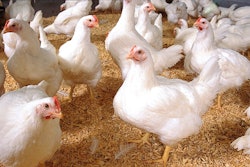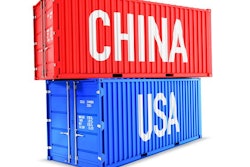
China’s Sow Herd Showing Signs of Expanding
Recent data shows that China’s commercial hog breeding herd is showing the first signs of expansion since the nation-wide outbreak of African swine fever (ASF) decimated the herd.
Sow stocks at commercial operations rose by +4.7% during October.
Market hog prices in China have surged to record levels during late 2019.
China’s hog herd is estimated to have contracted by 0.6% during October. This is the smallest month-over-month decline since 2018.
Various public and private sources estimate that China’s hog herd has declined by 50% since ASF in 2018.
There is no vaccine for ASF.
FBN’s Take On What It Means: At FBN, we believe that record high market hog prices are doing their job of helping to increase future supplies. While it will take time for increased market hog supplies to reach the consumer, we believe that as China rebuilds their breeding herd, market hog supplies can contract further which can force domestic pork prices higher and hasten the demand for imported pork. We believe that more pork demanded by China can be positive for the U.S. pork export program and the U.S. pork producer.
China Imports Less Brazilian Soybeans During October
China's soybean imports from Brazil were down 42% year-on-year (YoY) during October.
During October, China imported 3.793 million tonnes (MMT) of soybeans; down from 6.53 MMT in October 2018.
China's October imports of U.S. soybeans from the United States during October were 1.147 MMT, up from just 66,955 tonnes in 2018.
China typically buys most of its soybeans from the United States in the fourth quarter, when American shipments dominate the market after the U.S. harvest and as Brazilian crops are still maturing.
China is the largest soybean importer in the world.
FBN’s Take On What It Means: We believe that the decline in Brazilian exports and the increase of US exports is a positive for the US farmer. We believe that the enhanced US export volume was the result of improved trade negotiations between the US and China. We also believe that the US was able to gain soybean export volume into Brazil as the Chinese government eliminated their 25% import tariff for selected domestic public and privately owned crushers.
The risk of trading futures, hedging, and speculating can be substantial. FBN BR LLC (NFA ID: 0508695)










